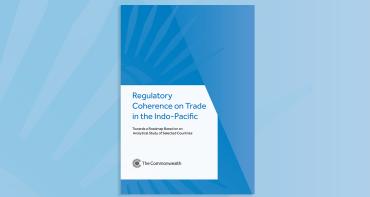Members of the Commonwealth and the Francophonie, including several developing countries from Africa, Asia-Pacific and Caribbean Regions, together with several G20 members of the two associations, met in Cape Town on 28th June 2011 to discuss the G20 Multi-Year Action Plan on Development. They received a presentation by South Africa, co-Chair with France and Korea of the G20 Development Working Group (DWG) on progress by the DWG; and welcomed the attendance and participation of a number of other G20 member countries and international organisations.
Multiple challenges confront the developing countries of the two associations, particularly the poorest, smallest and most vulnerable economies. The establishment and pursuit of the G20 DWG nine-pillar multi-year action plan on development was welcomed. Discussion focused on three key pillars - trade, growth with resilience and financial inclusion. Many countries have seen their share of global trade progressively decline, largely due to two interlinked factors - inadequate market access and limited trade capacity. With the Doha Development Round now stalled, they urged the DWG to promote an urgent initiative to return development oriented trade round, focusing particularly on agriculture, preferential market access, rules of origin, trade in services and preference erosion.
A number of practical suggestions were offered to the DWG, including establishing a task force to examine the feasibility of a more comprehensive duty-free and quota-free market access framework; simplifying and streamlining rules of origin; and early implementation of the WTO services modalities for LDCs and expansion of these modalities and the overall G20 preference regime. Additional issues, including non-tariff barriers such as standards and labelling; regional integration, the effects of climate change on trade and initiatives to expand aid for trade and productive capacity development were suggested.
South-South trade is particularly important and participants called for improved market access provision by emerging market economies; suggestions to monitor progress on aid for trade and coordinate the implementation of development-related commitments.
Challenges in achieving growth with resilience include low growth rates, high debt rates and the impact of climate change and natural disasters. The smallest countries are especially vulnerable because of their economic openness, dependence on a narrow range of exports, dependence on strategic imports and peripherality. They welcomed the economic resilience framework and country-focused vulnerability and resilience profiling developed and successfully piloted by the Commonwealth Secretariat; and recommended that these be promoted and expanded by the DWG; and that the DWG create a Growth with Resilience Trust Fund to finance programmes in developing countries.
Progress by the DWG in promoting financial inclusion was welcomed. Several factors influence access to finance by households including employment, education and qualifying requirements. Several practical measures were recommended to meet the goals of financial inclusion, including the adoption of an SME financing framework that is appropriate for developing countries; development of a set of indicators on financial inclusion; the formulation of principles for effective financial inclusion, development of region specific programmes; new initiatives to build capacity, including in insurance and m-financial services as well as south-south learning programmes; reviewing IFI lending policies, and re-considering the financial action task force principles in small states.
They asked both organisations to collaborate closely with the G20 DWG through facilitating dialogue to address the needs of the poorest, smallest and most vulnerable countries, noting that a strong outreach process by the DWG is essential to the success of its multi-year action plan on development. They urged the DWG to draw on the resources of the Commonwealth and La Francophonie in the context of extensive analytical research, consensus-building and advocacy.



